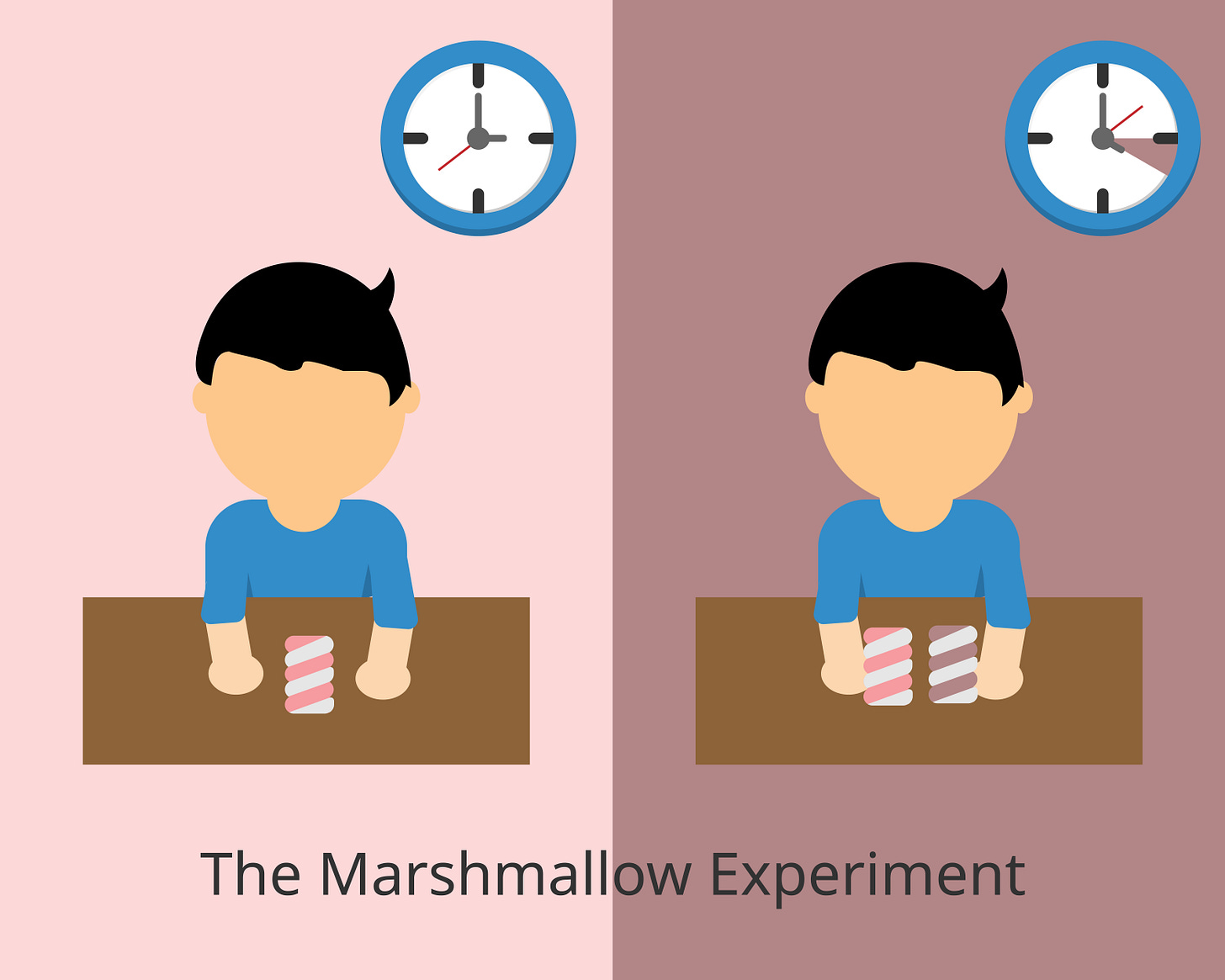The Marshmallow Experiment
What a 1970 Stanford experiment and Freddie Mercury can tell us about not waiting to invest.
Imagine you’re a child again and you’re offered a nice big marshmallow (which happens to be your favorite). Before you have a chance to dig in, you’re offered a deal: you can eat the marshmallow now—or wait 15 minutes to receive two marshmallows.
What would you do?
This, in brief, summarizes an experiment on delayed gratification conducted at Stanford University in 1970. In follow-up studies researchers concluded that children who were able to wait longer for the preferred rewards tended to have better life outcomes (though that conclusion has been debated in later years).
But it’s good enough for our purposes.
Turning You Stuff Back Into Cash
Let’s now try another experiment. Suppose you have a device that you can point at any of the stuff you have lying around your house and instantly transform it back into the cash you originally paid for it. Would you use it? How much of your stuff would revert back to cash?
This is just another way to help you focus on the issue of instant gratification. Or, in the words of Freddie Mercury of Queen:
I want it all.
I want it all.
I want it all.
And I want it now.
(By the way, we’re not suggesting that you should only buy things you need and avoid things that you might not really need, but you want. There’s nothing wrong with buying things or experiences that bring you enjoyment—as long as you can afford them.)
The Hidden Cost of Coffee
By the way, if you buy your favorite large epic coffee concoction and pay for it with your credit card, you may be surprised at how much that coffee will end up costing if you don’t pay your account off every month. How much?
With an average credit card rate of 20% or higher, the amount you pay can be staggering if you just make the minimum payment each month (meaning you’re continuing to pay for the coffee—potentially for years). Check it out.
Now, multiply that by every coffee you buy and we’re talking about racking up some serious debt!
Missed Opportunities
Since the stuff-back-into-cash device we just proposed doesn’t exist, you’re left with dealing with the instant vs delayed gratification issue in real time.
Since most of us have a limited amount of funds, when you buy one thing you’re often precluding the opportunity of using your money in some other way.
One of those other options is investing, in which case you’re going to start the process of turning your money into more money sometime down the road.
And it’s the “sometime down the road” part that makes this challenging (because we’re not talking about the mere 15 minutes from the Marshmallow Experiment).
Is It Worth It?
Which brings us to the question of, “Is it worth it?”
Due to the magic of Compounding, the answer is very likely, Yes! As we discuss many times throughout these posts, compounding can grow your money in a way that seems impossible—but it really does work.
Because investing your money grows your money, the decision not to invest actually costs you money in the long run—potentially a lot of money. It just takes Time.
One of the reasons people ignore this is because they are never taught about investing and compounding so they don’t know what they’re missing. Reading these posts will help you solve that problem and give you the confidence to get more out of your money—so you can get more out of your life.
One of the greatest financial regrets for many people approaching retirement is that they didn’t take full advantage of compounding.
So, next time you’re thinking about laying out some cash to get that (fill in the blank) NOW, at least pause to consider whether you’ll be wishing you could turn it back into cash a year from now.
Stuart & Sharon



